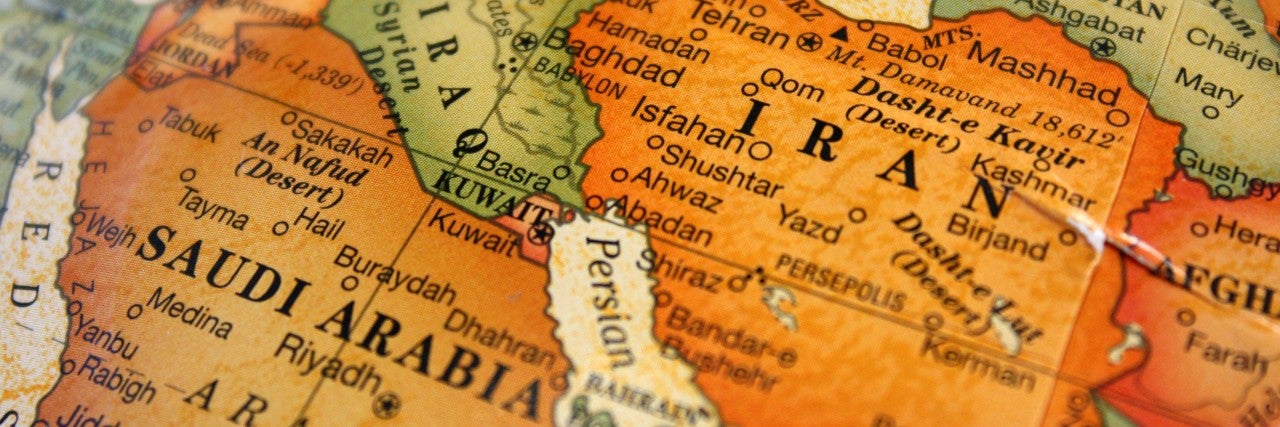March 17, 2023
Ever since President Biden flew directly from Israel to Saudi Arabia in the summer of 2022 and Saudis opened their airspace to Israeli flights, all eyes have focused on Riyadh as potentially the next signatory of the historic Abraham Accords. But first, a surprising new agreement between Saudi Arabia and Iran, brokered by the biggest surprise of all: China. Here’s what you need to know about the conditions of the agreement and its impact.
To what did Iran and Saudi Arabia agree?
The agreement, signed in Beijing on March 10, says that over the next two months both countries are expected to reopen their embassies and exchange ambassadors. In addition, Iran pledged to stop further attacks on Saudi Arabia and withhold support for terrorist groups that have targeted the kingdom. A fragile ceasefire already exists in Yemen, where the Saudi-backed government has been fighting Iranian-backed Houthi rebels for nine years.
The two also agreed to renew a security pact signed 22 years ago to cooperate on terrorism, drug smuggling, and money laundering, and another agreement on trade and technology.
But none of this will immediately lead to a warm and cozy friendship. On the contrary: there’s uncertainty whether the agreement will be respected by both sides, and it could take a long time for tensions to recede between the two countries.
How have relations been between Iran and Saudi Arabia up to this announcement?
For most of the period since the Iranian Revolution of 1979, Saudi Arabia and Iran maintained normal diplomatic relations, despite an ongoing tussle for power spurred in part by religious difference. Saudi Arabia, a monarchy and home to the birthplace of Islam, has long seen itself as the leading Sunni Muslim power in the region, while Iran’s clerics aim to export Shia Islam.
Diplomatic relations fell apart in 2016 after the Saudis’ beheading of a Shia cleric convicted of terrorism led to rioting and attacks on the Saudi embassy in Tehran. With the exception of Oman, most of the other Gulf states severed ties with Iran, but gradually restored relations in the intervening years. Meanwhile, Saudi Arabia’s relations with Iran have remained strained, due to a variety of factors, including a proxy war in neighboring Yemen and concern about Iran’s nuclear program.
Over the past several years, Iraq hosted a series of summits for Saudi and Iranian diplomats to address security concerns. It now appears likely that those meetings laid the groundwork for this détente.
How will this affect America’s role in the Middle East?
China has long been a huge trading partner for Saudi Arabia and other Gulf countries, but with Beijing now moving into the space of successful diplomatic intermediary and at least potentially as diplomatic crisis-resolver, a new era of U.S.-Chinese competition in the Gulf may be at hand.
This China-brokered deal helps show the Gulf countries that there is an alternative superpower to the U.S. If China can build on this success by mediating a reasonable settlement to the Yemen conflict (more on that below) – something U.S., British and UN mediation has been unable to achieve for more than four years – this could spell a new era of Chinese influence in the Gulf.
While the U.S. military’s footprint in the Gulf is vastly larger and more assertive than that of any other country, this Chinese-brokered deal calls for more serious U.S. engagement with the region, including moving expeditiously to finally send accredited U.S. ambassadors to Riyadh and Abu Dhabi. More than two years into the Biden administration, a nominee as U.S. Ambassador to Saudi Arabia was confirmed by the Senate only this week, and the confirmation process for a nominee as Ambassador to the UAE advanced in the Senate after a long delay.
In addition, long-time U.S. partners such as the United Arab Emirates have made it clear that the U.S. should not make them choose between the U.S. and China. A higher Chinese diplomatic profile will only deepen the sense among Gulf nations that they should prioritize strategic flexibility.
How does the Iran-Saudi Arabia agreement, and China’s role in it, affect Israel and the potential expansion of the Abraham Accords?
Israel shares with GCC states and others – including the United States – an interest in economic relations with China; bilateral trade has been roughly $20 billion in recent years. Its strategic architecture linked closely with the United States, Israel has no security ties with Beijing. Chinese investment in big Israeli infrastructure projects has largely been halted due to U.S. pressure.
Media reports over the weekend demonstrated that the normalization of Israel-Saudi Arabia relations is still on the table. Coinciding with the Iran announcement, a series of news reports described in some detail what Saudi Arabia demands from Washington in order to move forward with that normalization. These reportedly include a U.S. security guarantee and support for a Saudi civil nuclear program. Saudi officials have consistently said that progress toward an end to the Israeli-Palestinian conflict was a condition for Saudi-Israeli peace.
In terms of impact on the current under-the-radar ties between Israel and Saudi Arabia, it’s important to know that nations do not have to choose between Israel and Iran. The UAE, which along with Bahrain pioneered the historic Abraham Accords with Israel, recently announced that it was sending its ambassador back to Tehran.
While Israel will continue its contacts with the Saudis, these contacts will probably now be even less visible and less public.

